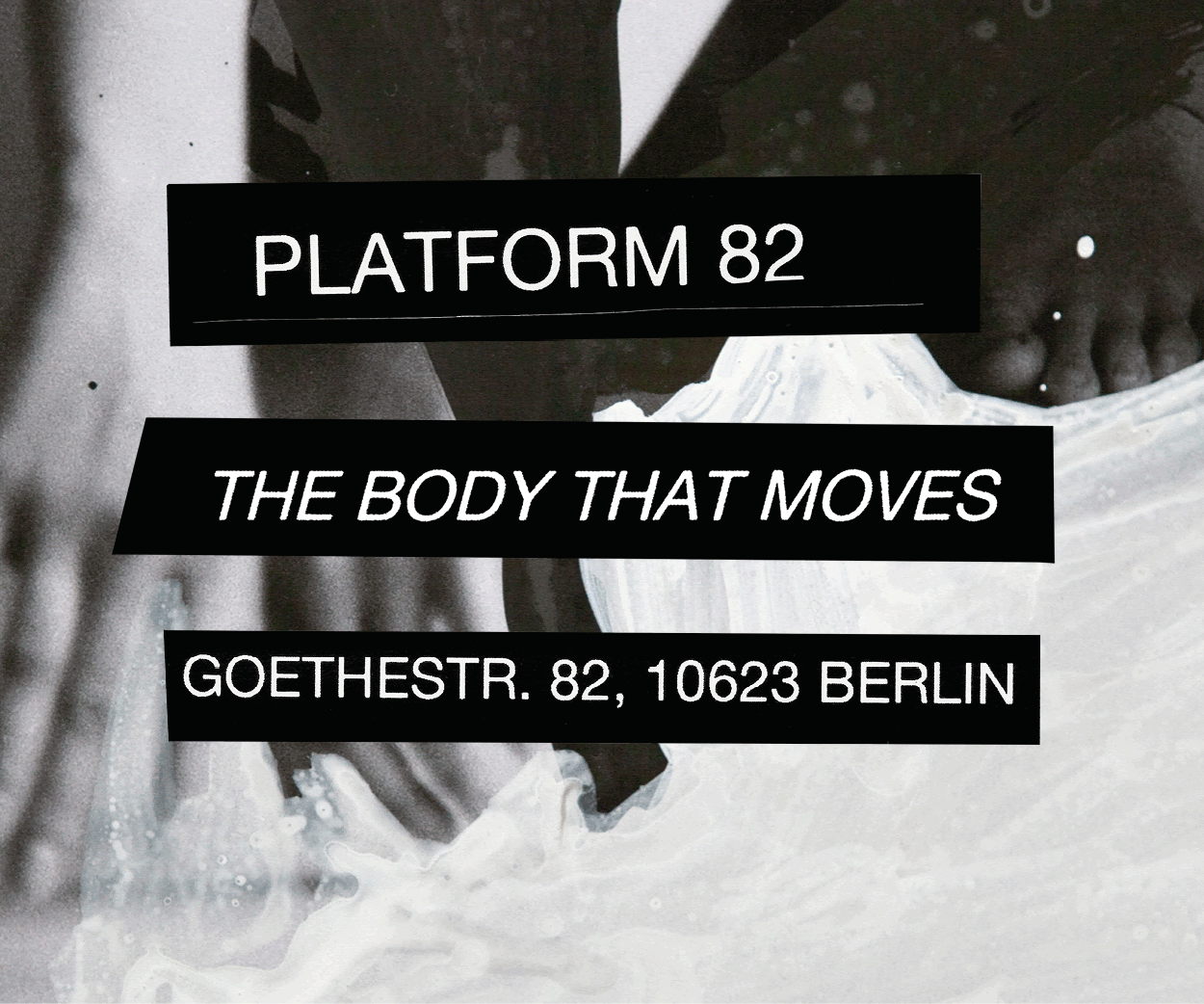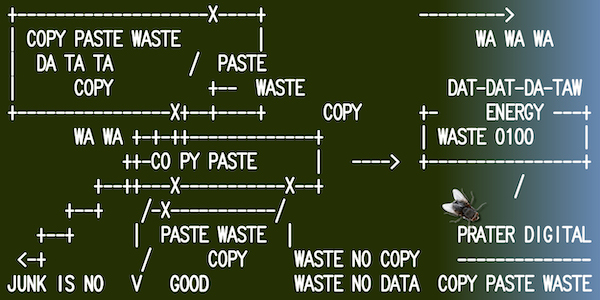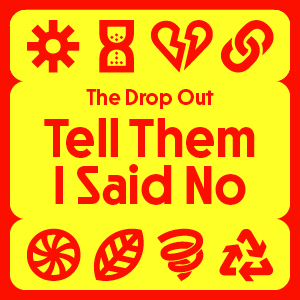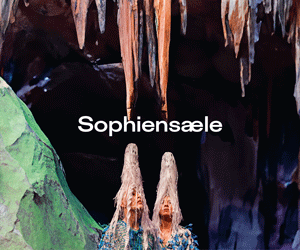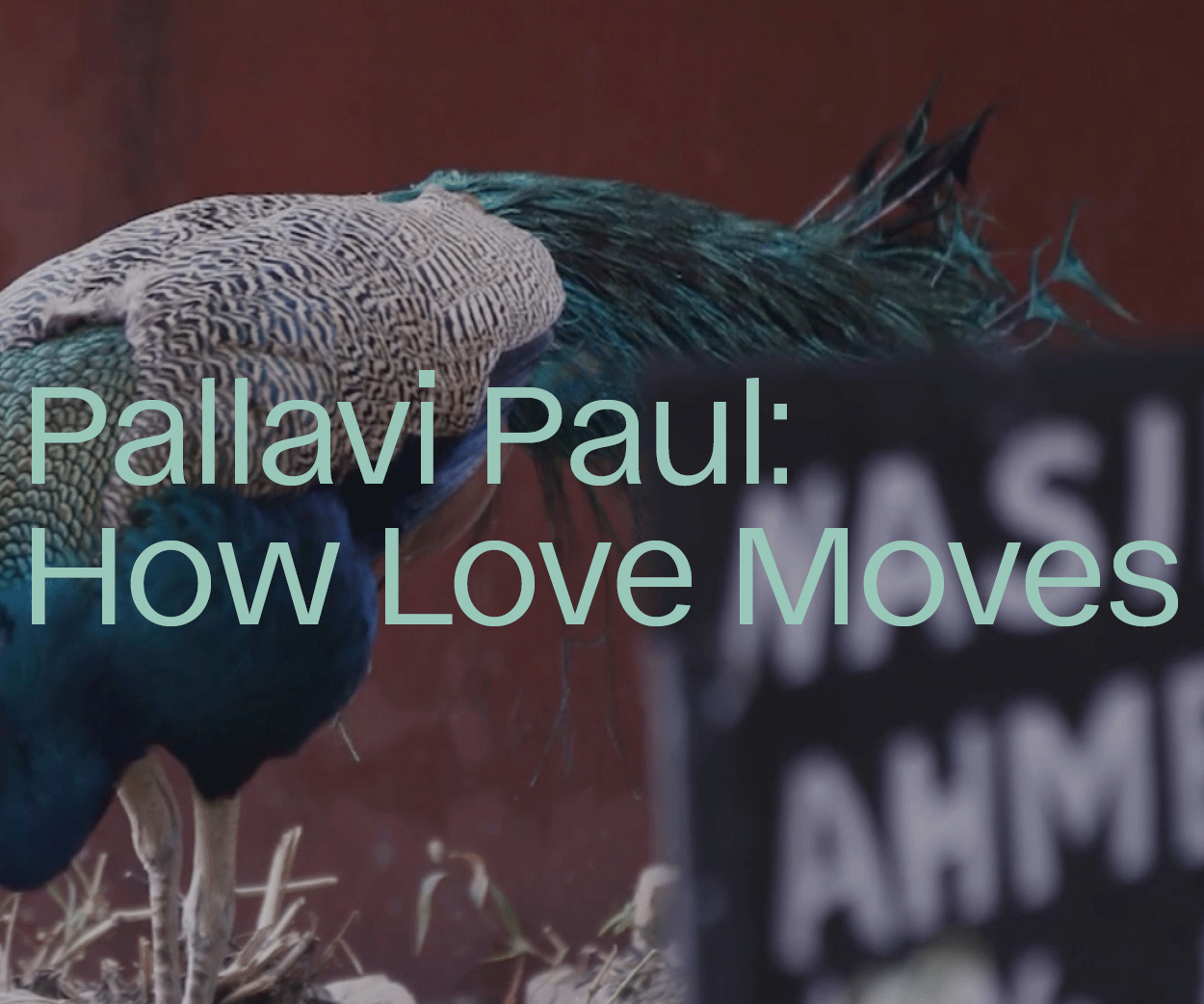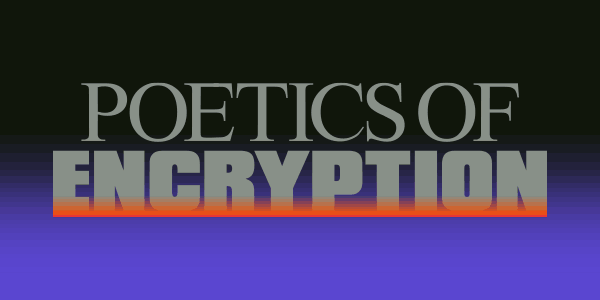by Annalisa Giacinti // June 13, 2023
The relationship between humans and technology, and the ethical implications of the latter, have been the subject of an ongoing debate that draws in all disciplines. During the opening speeches of Akademie der Künste’s newly opened exhibition ‘Broken Machines & Wild Imaginings,’ it was emphasised that the focus of the participants’ research was not on the capitalist pursuit of artistic innovation, optimisation and acceleration that is frequently associated with the digital, but rather on the social, historical, cultural and political forces that facilitated the rise of AI. While interrogating the interwoven dynamics between power, ethics and technology, and the standard differentiation between human and mechanical, natural and artificial, the ten fellows steer away from the pixelated and computed realities of machines, their “extractivist logic, algorithmic violence and techno-solutionism,” to fashion alternative worlds through aesthetic narratives of repair.
Since 2019, JUNGE AKADEMIE—the international artist-in-residence programme at Akademie der Künste, Berlin—has been launching several projects aimed at examining the wide topic of intelligent machines, through the Human Machine and AI Anarchies fellowships. As part of the exhibition, the academy has invited ten artists to develop their works in response to the ubiquitous presence of artificial intelligence in the contexts of the art world and beyond, resulting in a major group show.
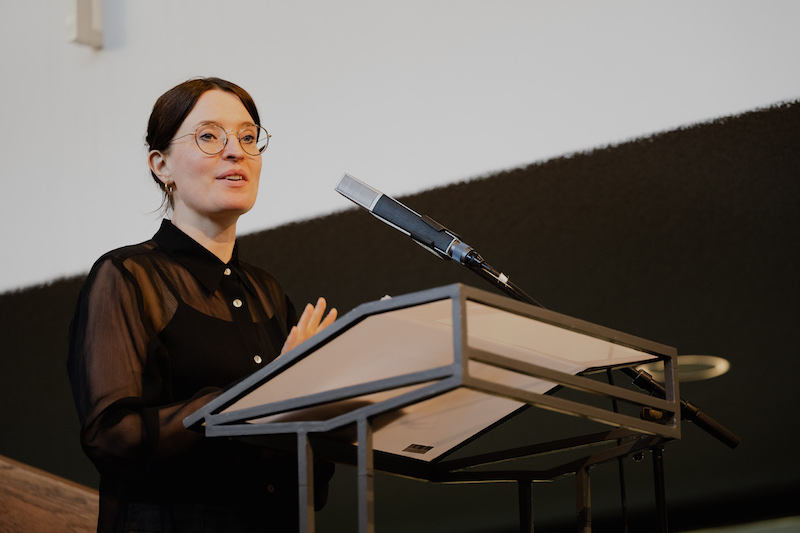
Opening speech by Clara Herrmann // Photo by Peter Oliver Wolff, courtesy of Akademie der Künste
With remarkably human irony, playfulness, care, “joie de vivre” and even a tinge of rage, the protagonists of ‘Broken Machines’ disengage from the colonialist rhetorics of unquestioned forward movement and space conquest, and ask, in the words of Global Media professor Nishant Shah: “who do we want to be and no longer where do we want to go.” They overcome the logics of Big Tech and hypercapitalism, and reframe the question of AI, focusing not on its deployment but on the people impacted by its use.
The exhibition title is inspired by Sarah Sharma’s feminist ‘Manifesto for the Broken Machine.’ Here, Sharma retrieves the epithet “broken technology” used to identify feminists, the gender nonconforming, queer, nonwhite people and the rest of the non-abiding, cast off as such within the parameters of patriarchy and rightwing politics. In the text, and in the exhibition too, broken machines turn into voices of resistance, rejecting brokenness and articulating alternative conditions of living. Histories and communities that may not be computable and haven’t been given a fair hearing in the biased configuration of AI are the subjects of the works presented, five of which were accessed as live performances taking place alternatively in Halls 1 and 2 on the opening day.
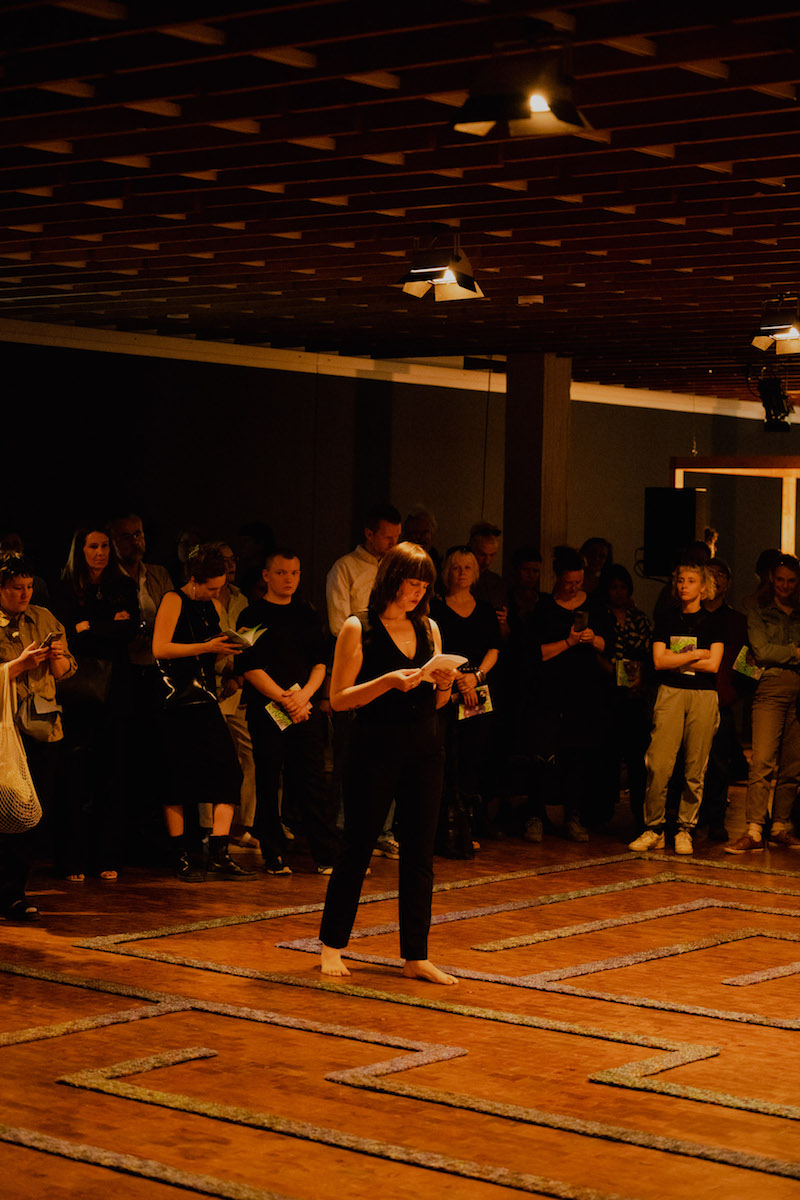
Sarah Ciston: ‘No Knots, Only Loops’ // Photo by Peter Oliver Wolff, courtesy of Akademie der Künste
The first to kick off the evening was ‘No Knots, Only Loops’ by artist Sarah Ciston. The performance lasted 20 minutes and consisted of Ciston walking through a 64-square-metre crocheted labyrinth made by 36,672 stitches, while reading an essay that presents her research into “Intersectional AI” and community-focused datasets. Meanwhile the process, which took the artist over six months, is shown in a 360-minute time-lapse video projected on the wall above the sculpture, meant to epitomise the invisible human labour that sustains machine learning systems. The resulting work represents an approximation of the 175+ billion parameters boasted by ChatGPT daily—numbers too immense to gauge through human size and scale. Instead, the wool labyrinth embeds tangible experiences of the body and labour: it is made of soft materials, care and craft, it’s not optimised and serves as a meditative path that one goes through, winding and unwinding, ultimately transforming. “I don’t learn like a machine,” reads Ciston out loud.
The following performance is ‘Ghosting the Machine’ by Sahej Rahal, which shows AI creatures roaming aimlessly through an uninhabited forest, fostering a free counter-narrative to India’s rigid caste system.
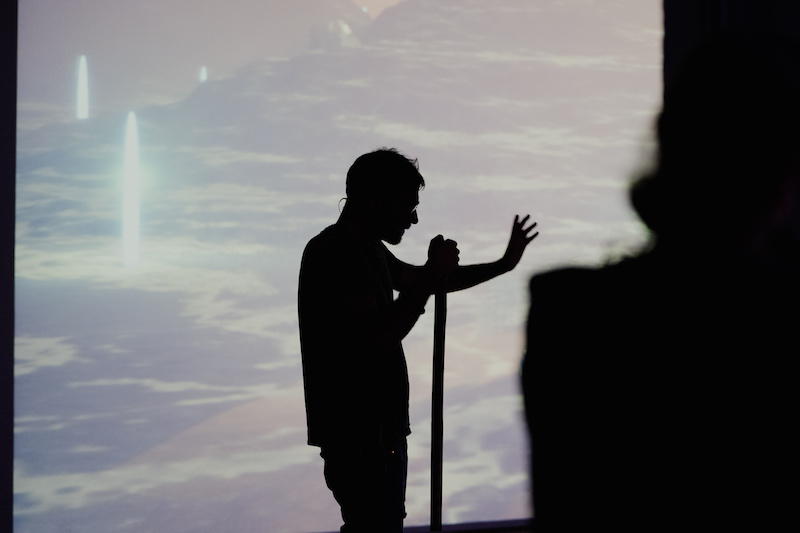
Sahej Rahal: ‘Ghosting the Machine’ // Photo by Peter Oliver Wolff, courtesy of Akademie der Künste
At 9:30pm, when the sun begins to set, part of the crowd gathers outside, in the garden courtyard that sits at the centre of the Akademie’s first floor. Unfortunately seats are limited and most of the audience has to stay inside and watch through the glass doors. ‘Oasis Dot Wet’ is a performance by Petja Ivanova and her collaborators Iyo Bisseck, Rain Rose and Kaya Zakrzewska. Ivanova’s intersectional feminist practice focuses on taboos surrounding female sexuality and, in ‘Broken Machines,’ it contends with the question: “How can the broken relationship between the body and technology be repaired through queer and experimental computing?” Her take: adding built-in moisture sensors to a custom pair of panties which, during the live show, are worn by her colleague Bisseck. The sensorial pad measures moisture in the crotch, which is simultaneously translated visually and projected on a screen as shifting 3D ecologies.
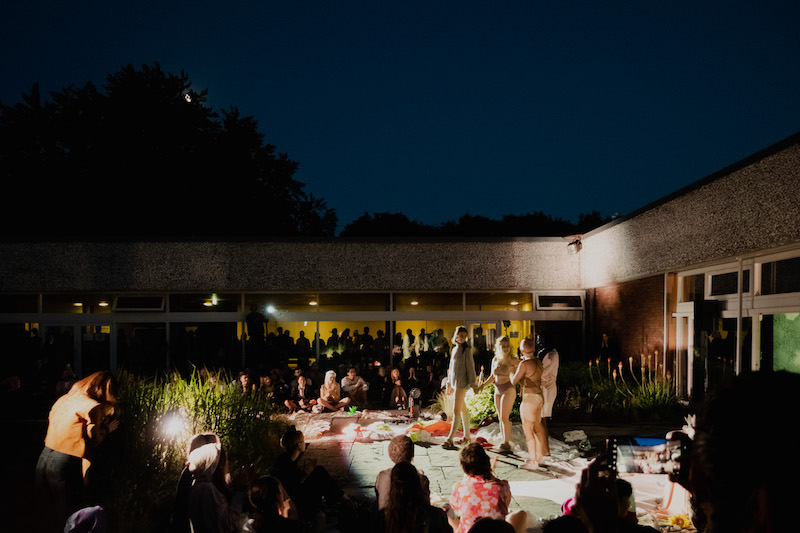
Petja Ivanova, Iyo Bisseck, Rain Rose, Kaya Zakrzewska: ‘Wet.do Oasisdotwet’ // Photo by Peter Oliver Wolff, courtesy of Akademie der Künste
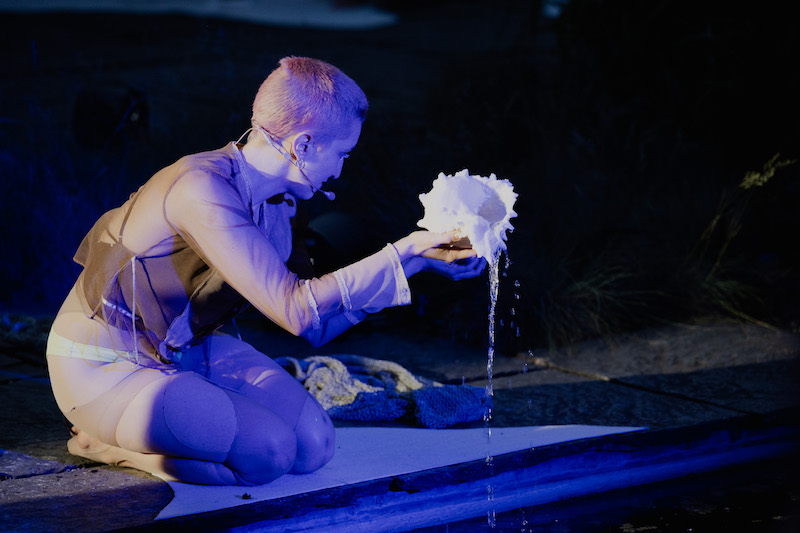
Petja Ivanova, Iyo Bisseck, Rain Rose, Kaya Zakrzewska: ‘Wet.do Oasisdotwet’ // Photo by Peter Oliver Wolff, courtesy of Akademie der Künste
All throughout, the performers chant onomatopoeic words of water sounds—variations of “splash!”—and dip their bodies into the pond, evolving into modern water deities. This way, “the body becomes the protagonist” and erotic pleasure is embraced, displayed and celebrated, rather than hidden and shamed as is too often the case with bodily fluids, intimacy and sexuality. Ivanova’s body, in particular, has a script written all over that she and her colleague recite in a manner that’s intentionally overly pompous, and seeks to ridicule traditional humanist discourses and recover a connection to nonhuman objects, other life forms and nature. “I only charge my tools when I’m in charge,” says Ivanova, adding “by listening to them I listen to my body,” suggesting a way to tackle her original query.
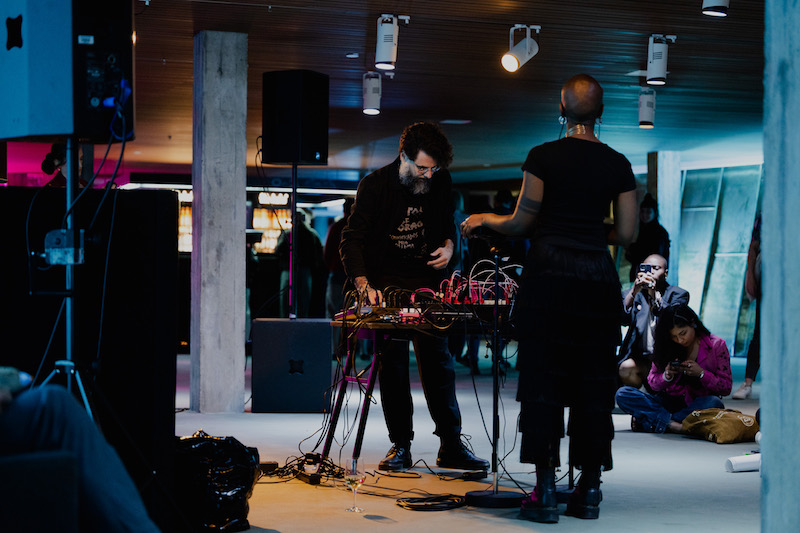
Gugulethu Duma, Pedro Oliveira: ‘TRANSIENTS #2’ // Photo by Peter Oliver Wolff, courtesy of Akademie der Künste
Two more musical performances by M Takara, Pedro Oliveira and Gugulethu Duma follow. Overall, each project is a personal metaphor of the impact of AI on the artists’ lives, and their respective responses. From bringing awareness to its complexity and overwhelming size, through the manipulation and superimposition of AI-generated sounds and inputs, to the final sublimation of AI into a tool for pleasure (to mention only some), all installations and live performances appropriate, challenge, disrupt and redesign worldviews, forms of knowledge, personal lineages, histories and myths with idiosyncratic creativity and joyful affect that patch up the visible cracks of “intelligent” yet disinterested technologies.
Exhibition Info
Akademie der Künste
Group show: ‘Broken Machines & Wild Imaginings’
Exhibition: June 2–July 9, 2023
adk.de
Hanseatenweg 10, 10557 Berlin, click here for map, click here for map


